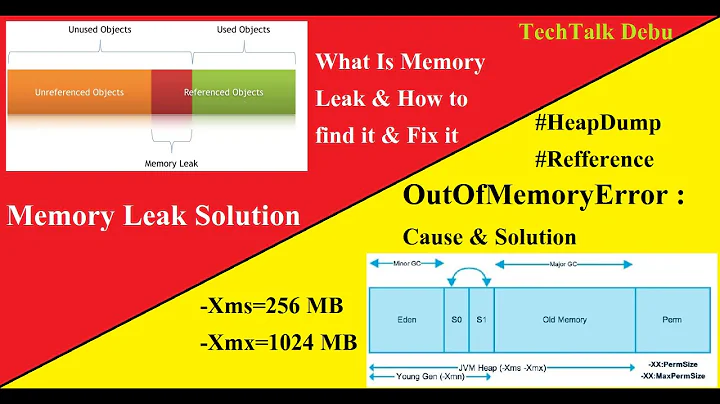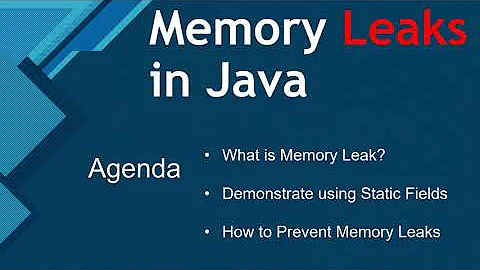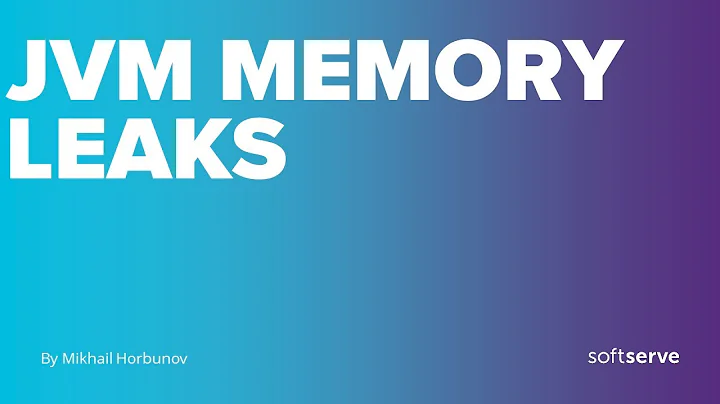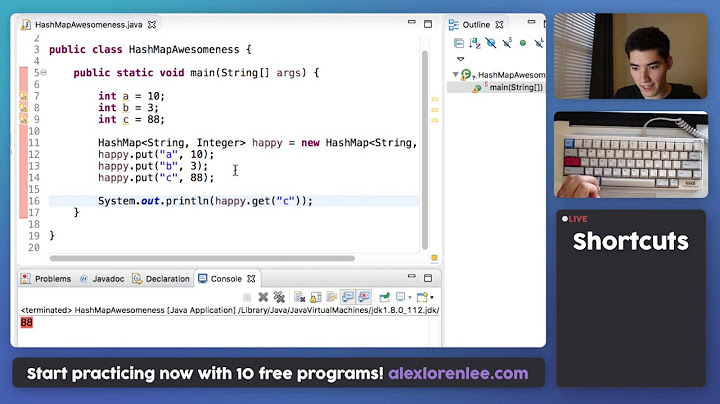Java hashmaps and memory leaks
You can do this, but I suggest a better alternative is to replace it. This will be more efficient if you have multiple threads.
public class Cache {
private Map<Integer, Map<Integer, List<String>>> map;
public Cache(args) {
}
public synchronized Map<Integer, Map<Integer, List<String>>> getMap() {
return map;
}
// called by a thread every 30 seconds.
public void updateCache() {
Map<Integer, Map<Integer, List<String>>> newMap = ...
// build new map, can take seconds.
// quickly swap in the new map.
synchronzied(this) {
map = newMap;
}
}
}
This is both thread safe and has a minimum of impact.
Related videos on Youtube
guest86
Updated on September 14, 2022Comments
-
guest86 over 1 year
I have a console Java application that needs some data from the database. As the application is running constantly, every 30 seconds, in order to lower the strain on the DB i'm using some sort of cache for the data.
Because there isn't a large amount of the needed data in the database, i'm using singleton Hashmap as my cache. My cache class looks like this:
public class Cache extends Hashmap<Integer, Hashmap<Integer, ArrayList<String>> { //some code }Every 5 minutes system will refresh the cache by:
1) calling "clear()" for the existing data 2) filling the cache with new data from the db.
Tell me, if i call the "clear()" for the structure i have ("nested" hashmaps) will Java clear all the data containd under my cache keys, or i'll end up with memory leaks?
-
 cyon over 10 yearsIs the map you create when building a new map a
cyon over 10 yearsIs the map you create when building a new map aConcurrentHashMap? Seems like it would need to be to keep this thread safe. -
Vishy over 10 yearsYou only need a ConcurrentMap if you are both reading and writing. In this case, it is only writing and after a synchronized block, only reading. No more lock/thread safety is required.
-
 cyon over 10 yearsAh I see you only write to the map as you build it from the database and then wrap it perhaps in an
cyon over 10 yearsAh I see you only write to the map as you build it from the database and then wrap it perhaps in anunmodifiableMap. However, do you not expose yourself to a memory leak problem? If users assign the reference returned bygetMap()to some variable then it will not get GCed afterupdateCache. -
Obenland over 10 yearsYou shouldn't have any
getMap()method. With the principle of encapsulation you want to hide the exact implementation with a map. The cache class should rather have someget(Integer key)methods to access the data. -
Vishy over 10 years@Xean +1, though it might be
getList(int key1, int key2)or even a visitor for the elements of the list.







